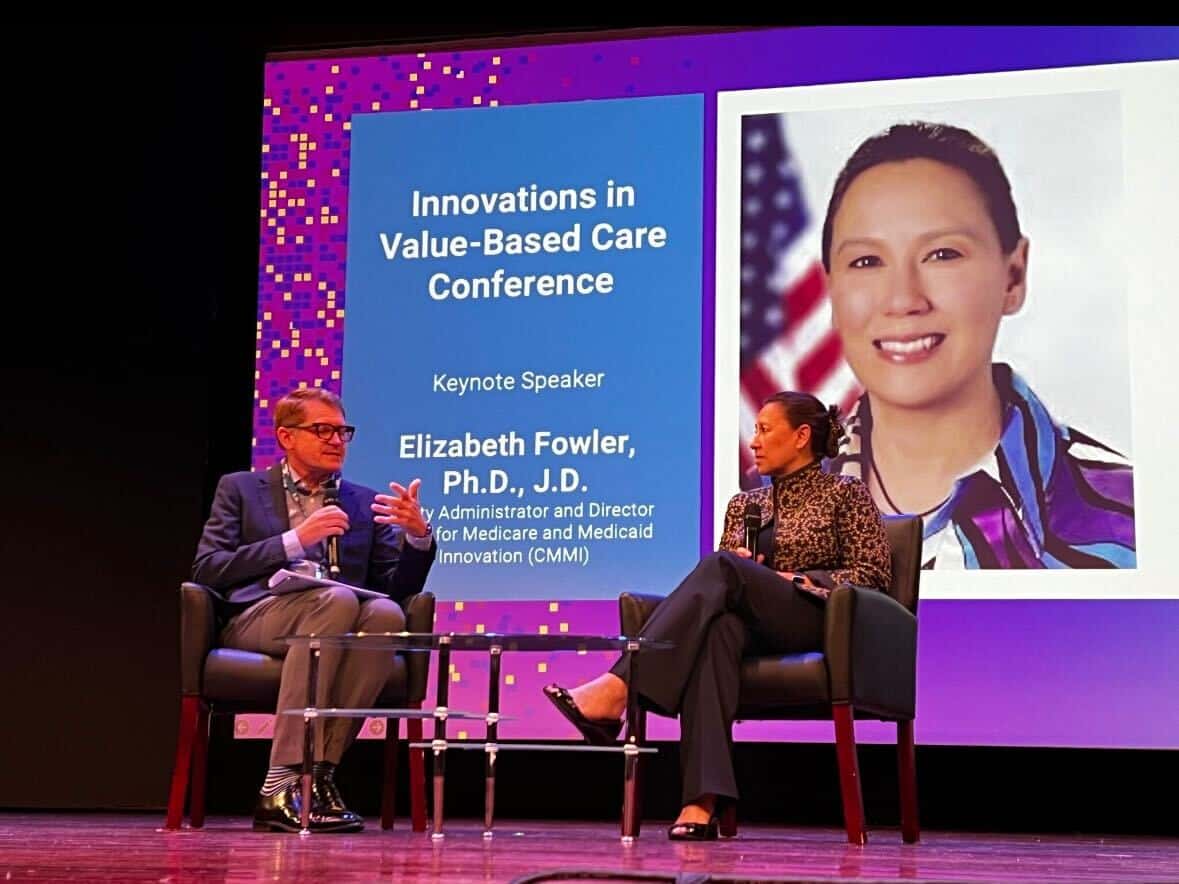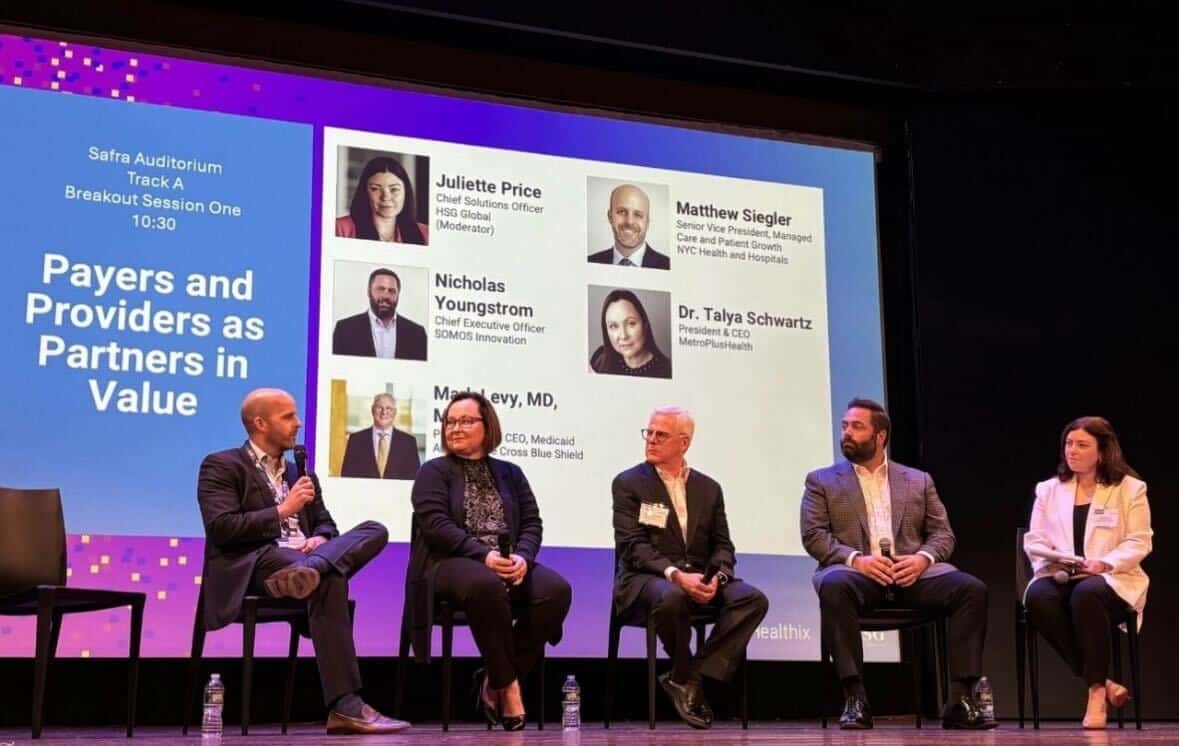At the second annual Innovations in Value-Based Care Conference 2024, hosted by Healthix and Helgerson Solutions Group (HSG), Pearl Health’s Senior Director of ACO Operations, Gillian Christie, and Director of Enterprise Partnerships, Matt Castelli, joined other healthcare leaders to discuss the future of value-based care. Here are our five takeaways:
Long-term Commitment to Value-Based Care Endures
Deputy Administrator and Director of the CMS Innovation Center (CMMI) Liz Fowler provided keynote remarks in conversation with HSG founder and CEO Jason Helgerson. Fowler noted that value-based care (VBC) models are likely to see more continuity than change (even with the upcoming election), due to strong bipartisan support. Although Fowler played an important role in developing the Affordable Care Act (ACA), she expressed concern over the statute’s short evaluation periods. The misalignment between limited data (e.g. 1-2 years), cohort selection, and short evaluation periods with long-term goals could risk premature judgment on models that take multiple years to demonstrate savings. Despite this, CMMI is exploring ways to incorporate components of ACO REACH (e.g. health equity requirements; full-risk tracks) into future CMS/CMMI models. We look forward to seeing how this materializes in future models.

- We Need to Better Communicate the Value of Value-Based Care
Karen Ignagni, CEO of EmblemHealth, provided the second keynote address. She stressed that there’s been a failure to effectively communicate value-based care to the public and build the political will necessary to transition to meaningful models (inclusive of downside risk). While the ACA receives attention for expanding access to healthcare, Ignagni emphasized that we must now ask whether patients are receiving the care they were promised: the best healthcare in the world. Building public support requires clearer messaging about how value-based care is improving patient outcomes and sustainability of the healthcare system.
- Patient Health and Well-Being are the Goal
Brittany Silvestri, Vice President of Population Health at Hudson Headwaters Health Network, pointed out that the word “health” has always been missing from both “value-based care” and “fee-for-service.” She emphasized the need to move beyond a purely financial and contracting focus, and shift toward a broader goal of whole-person health. Achieving this vision requires realigning incentives to prioritize prevention, behavioral health, and holistic patient care. The recently announced 1115 waiver in New York that focuses on the implementation of Social Care Networks (SCNs) will additionally work to enable these goals. Pearl is thrilled to be working with Hudson Headwaters and other New York stakeholders on creating better health and healthcare.
- Patients and Providers are Essential to VBC Success
Navigating the payer-provider relationship is key for value-based care to succeed. Nicholas Youngstrom, CEO of SOMOS Innovation, stressed that aligning quality, operations, and financial objectives around doing “the right thing for the patient” is required — which requires alignment of both providers and payers. Matthew Siegler, CEO of NYC Health + Hospitals ACO, meanwhile suggested that focusing on the right actions — not just doing more — will drive the results needed to show meaningful outcomes in value-based care models. Pearl’s Platform is purpose-built with this in mind, surfacing the right actions at the right time to improve patient outcomes and lower costs.

- Executive Action May Be Needed to Break the Stalemate
Organizer and Moderator Jason Helgerson (HSG) likened the healthcare system to a battlefield, with many opposing forces and conflicting incentives at play. He pointed out that value-based care aims to align these forces toward a common goal, but it’s clear that more is needed to push organizations toward full commitment. While CMS’s goal of enrolling most Medicare and Medicaid beneficiaries in accountable care programs by 2030 is a positive step, conference participants expressed that achieving true system-wide adoption may require executive action to overcome entrenched resistance and competing priorities. This underscores the need for stronger leadership and policy interventions to unify stakeholders around the value-based care model.
At Pearl Health, we are dedicated to driving the future of value-based care by empowering primary care organizations and providers with the tools and support they need to succeed. As we continue to collaborate with industry leaders, we remain committed to transforming care delivery and realizing the promise of value-based care. Connect with us to learn more about how we’re enabling providers to focus on their patients’ well-being and make the transition to value.



